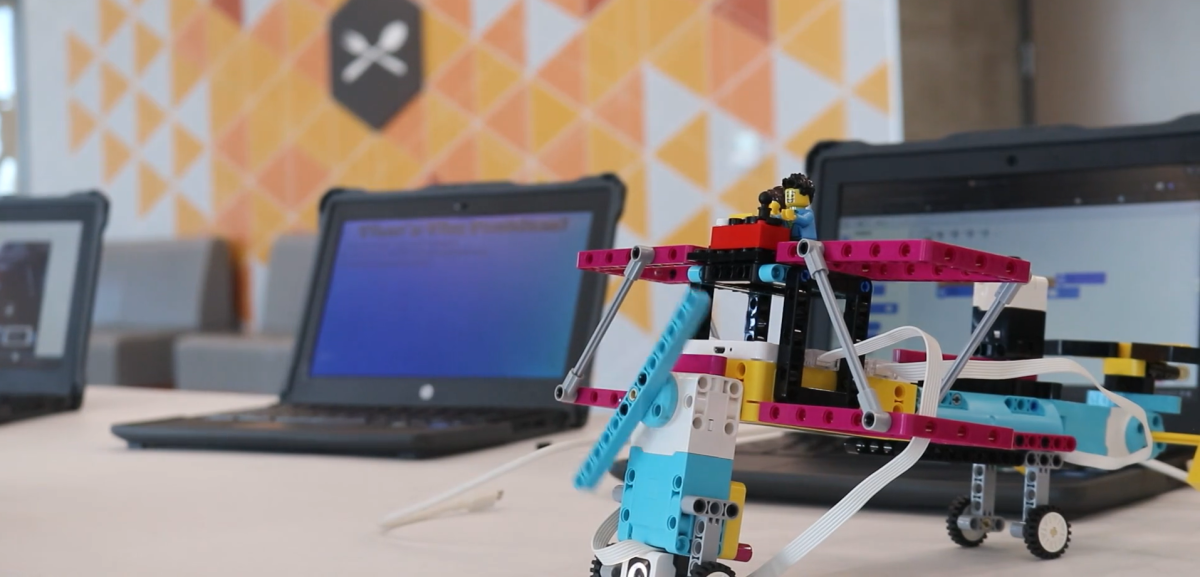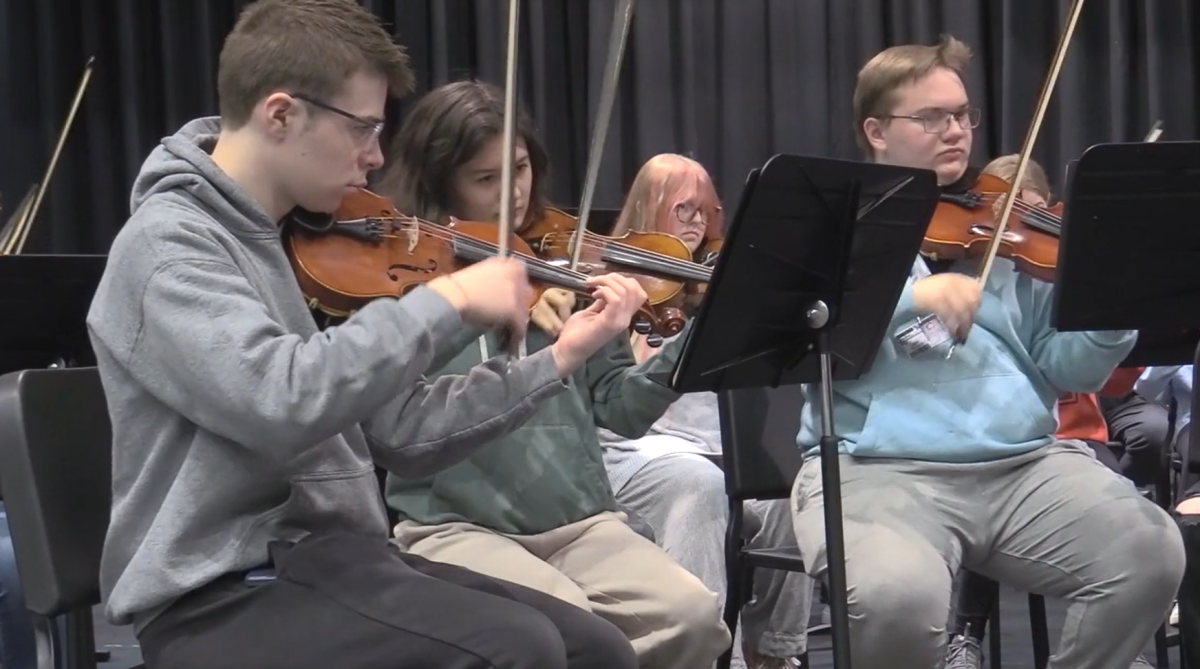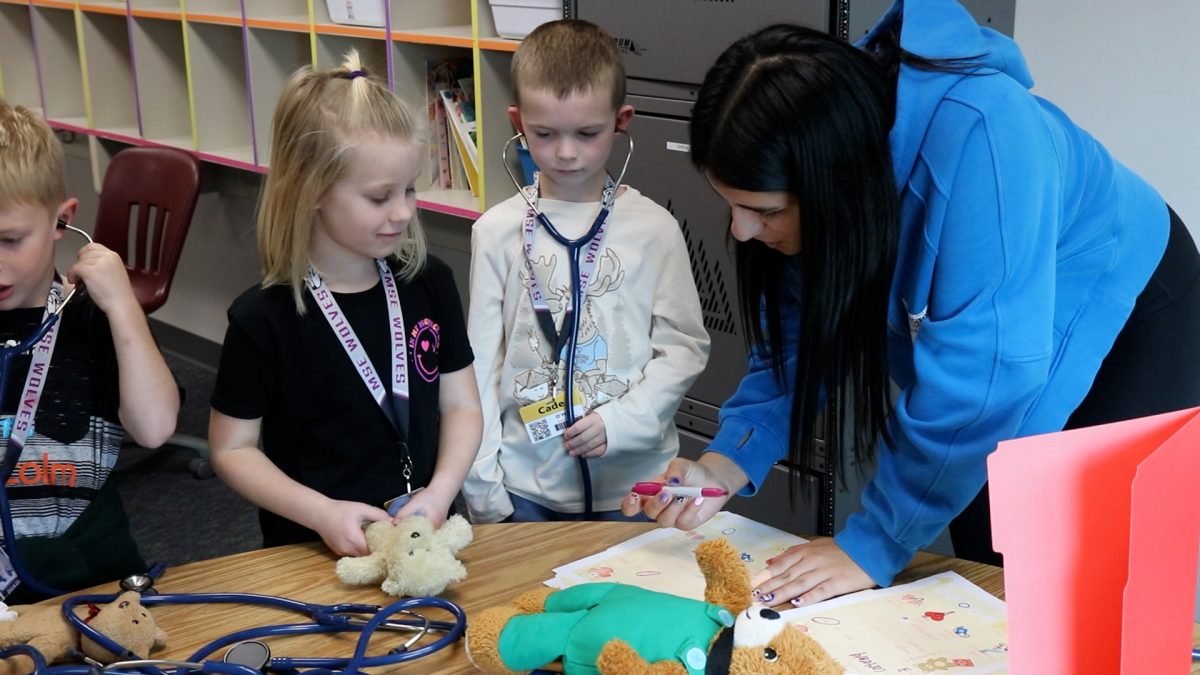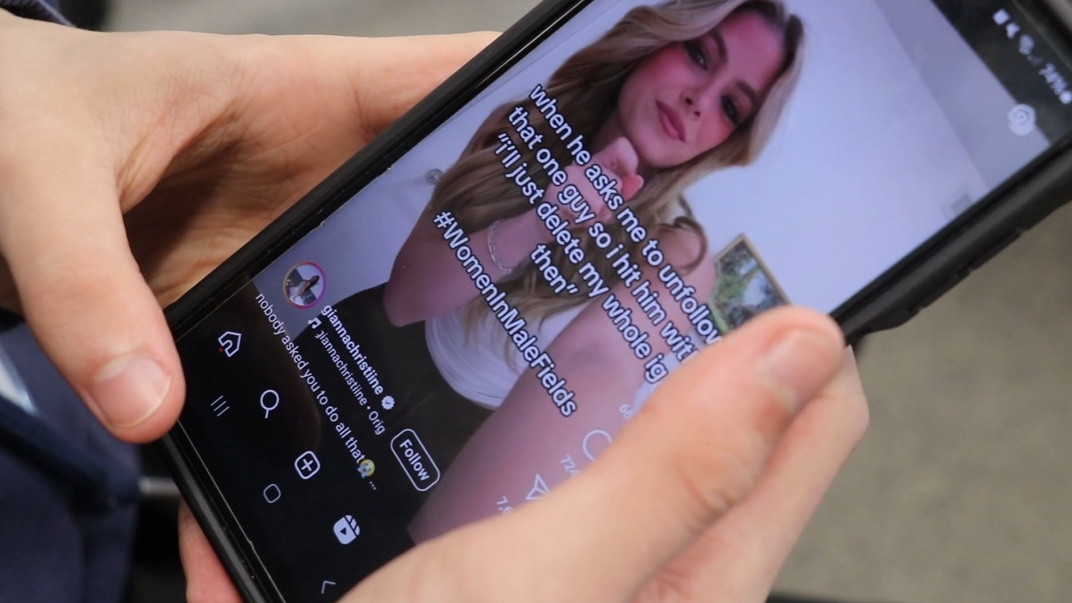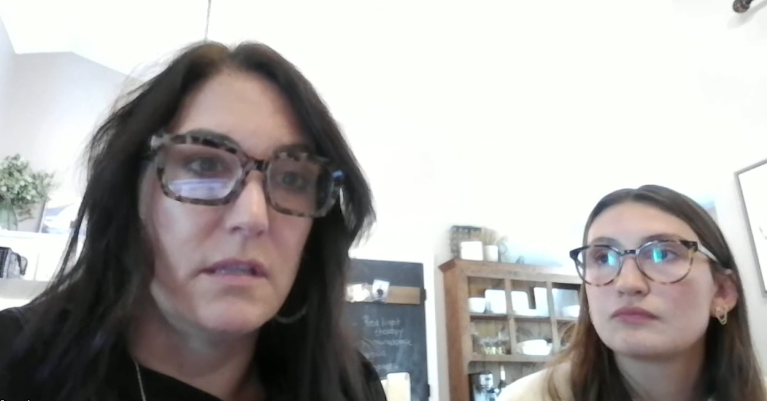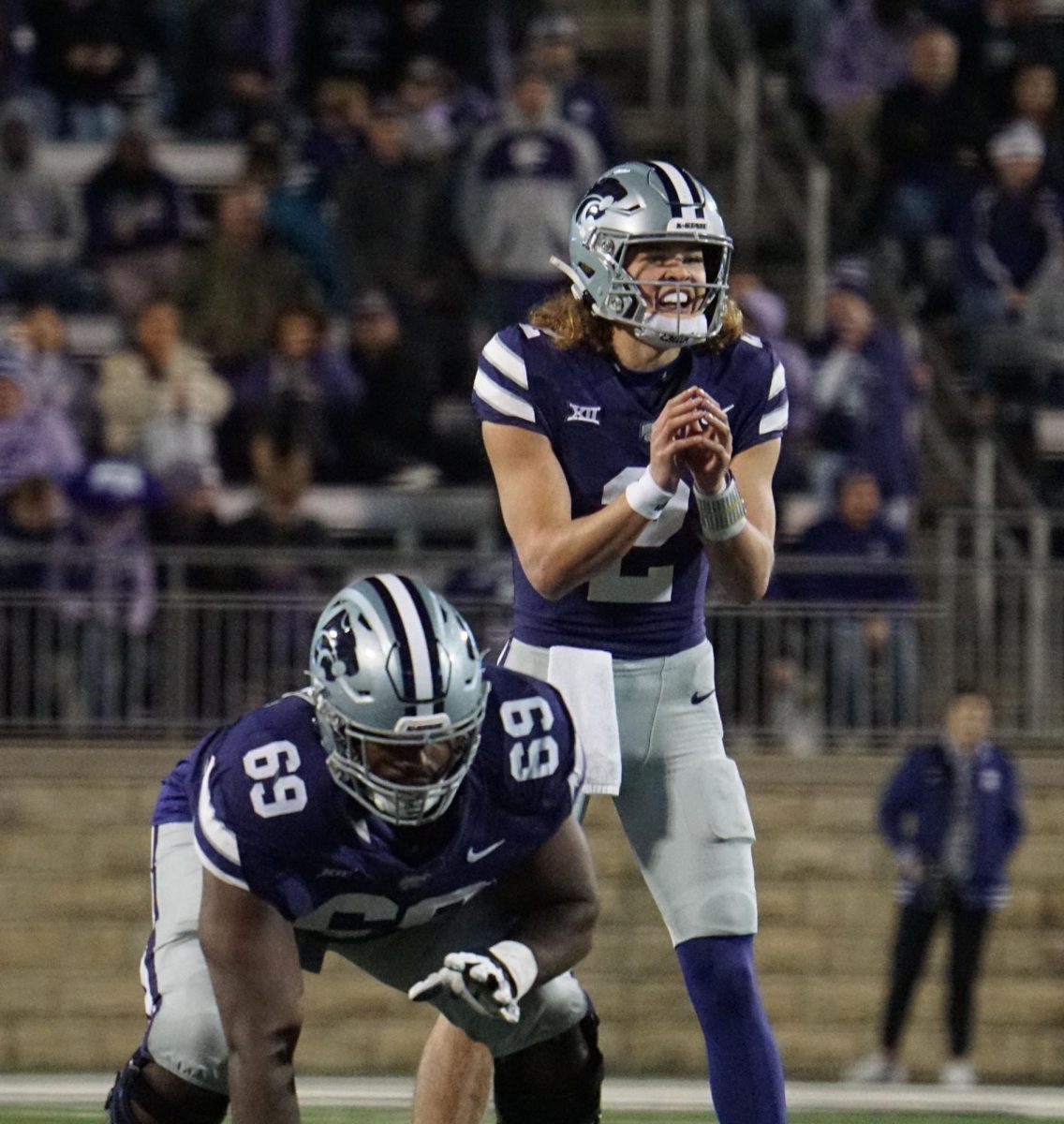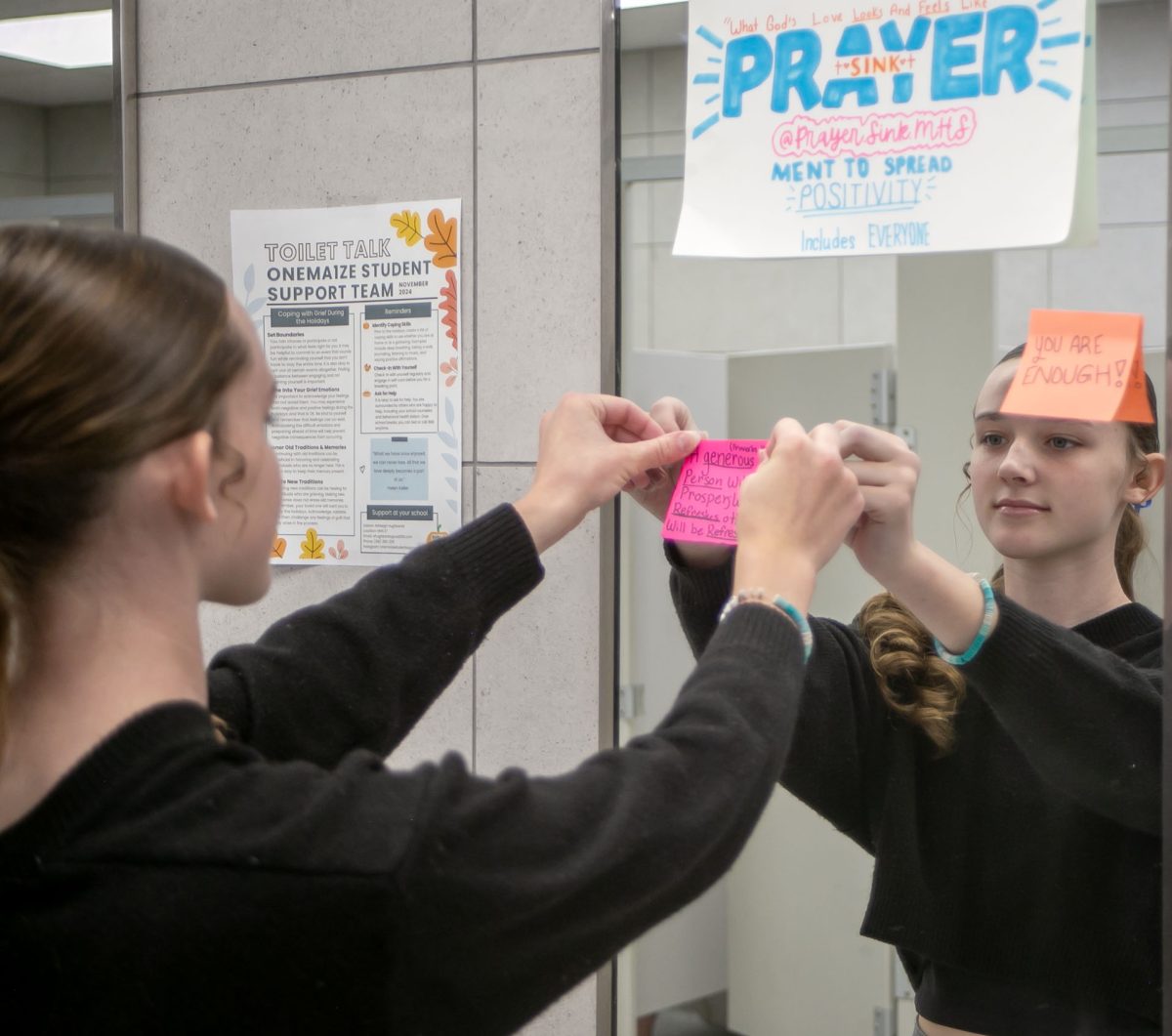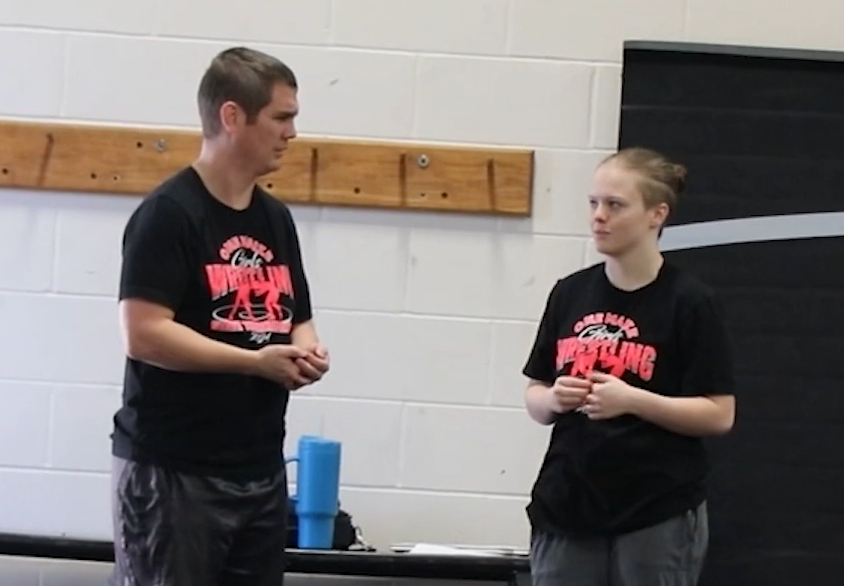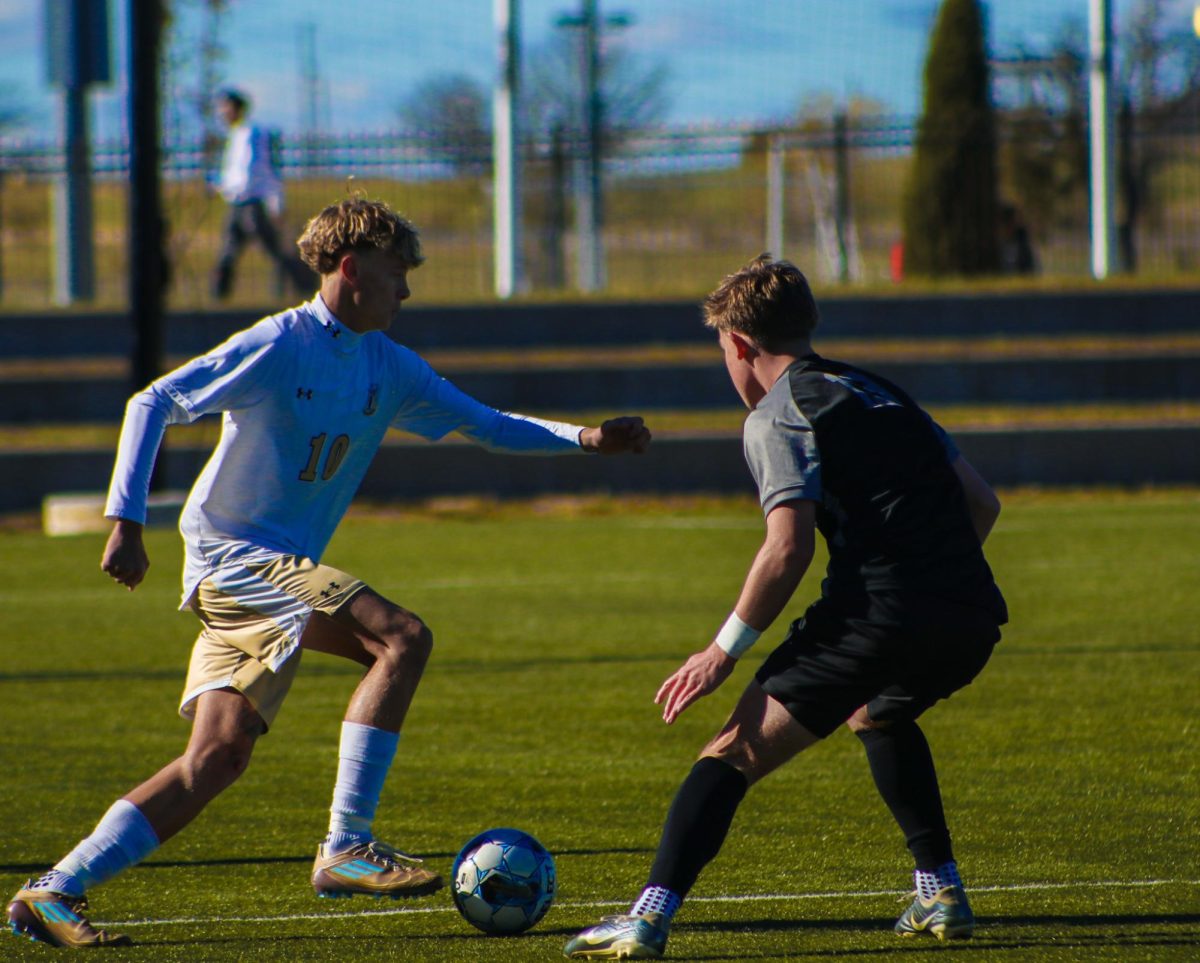Gambling during school seems to be more common than previous years and teachers are starting to see it as a problem, especially when it happens during class. Students, however, see it differently.
“As far as class time, I don’t see [gambling], but In my Senior Flex I have a group of boys that play blackjack every single day”, MSHS teacher Lindsay Williams said. “I’m assuming they play with money, but it’s all happening digitally.”
Maize High teacher Madison Austin is also dealing with an increase of gamblers in her class, and does not just see seniors playing, but also juniors and sophomores.
“I see a lot of students trying to secretly gamble. . . with both dice and sports, sometimes in the classroom and sometimes at school activities like football games in the student section,” Austin said. “I’m very against gambling in school . . . because it is illegal for anyone under 18 to gamble. . . . Once they reach the age of 18, I am more than happy with them gambling with whatever money they want.”
Austin has clearly shown what she thinks about underage students gambling.
“One thing I did when someone was playing dice was that I would make them put them in the freezer,” Austin said
MSHS student Isaac Fuller believes there’s no negative side of gambling in school.
“You know the consequences and the benefits of it, and there are only winners or quitters,” Fuller said. “And I believe that gambling at the lunch table is an ok thing to do.”
There are many reasons for the increase in teenage gambling, one of them being online games.
“Gambling can be found in all types of media, an example being video games, where even games like Pokemon GO include forms of gambling,” Maize High student Kaleb Thimesch said. “The point being that references to and direct gambling can be found everywhere in today’s pop culture.”
And these references that teenagers see everyday is having an effect on their behavior, as others believe that the increase in student gambling comes from the commercials for online gambling, that have become more visible in both social media and on tv.
“I could definitely see [gambling] in different sports environments and this is especially because a lot of athletes are in the commercials you see everyday,” Austin said.
Research shows that a huge percentage of this increase comes from these commercials, with the American Psychological Association showing young men in their twenties as the fastest growing group of gamblers and stated that sports betting and video game-based gambling are the main sources of that growth. People under 18 were not included in this particular study, but it shows a clear trend among the younger generations.
Students therefore seem like the top target audience for gambling at the poker table and online. The influence of the media seems to have turned some students of this generation into avid gamblers, either for fun or because they see an opportunity to make money. Either way, something that can start as lighthearted fun can turn into the loss of considerable amounts of money or an addiction
“It would be interesting to interview these senior boys during flex because I guarantee you some of them spend a lot of money gambling, not only here but at the casinos,” Williams said. “But, I think some of them have won some money too, so it would be interesting to know, if they would reveal, how much they have won or lost.”
“The students in Williams’ Flex class declined to be interviewed.”
According to psychologist Shane Kraus, PhD, director of the Behavioral Addictions Lab at the University of Nevada, Las Vegas, adolescent and young adult men are more likely than other groups to become addicted with up to 5% of that group that try gambling developing a disorder.
“I don’t think it’s necessarily an addiction to gambling, but it is an addiction to making money,” Austin said. “As a business teacher, I get it, I want my students to make as much money as possible, but I want them to do it in a legal and safe way.”



